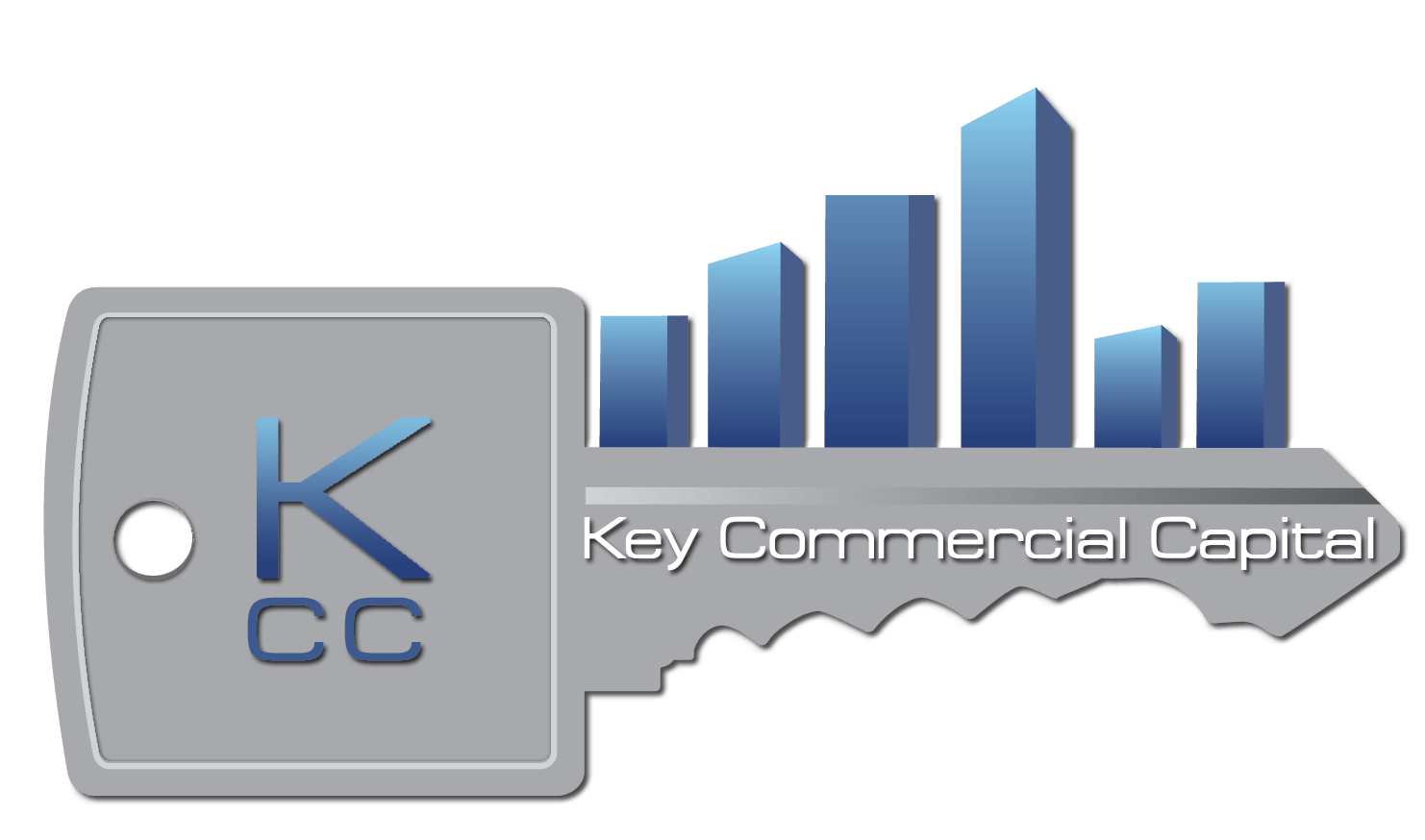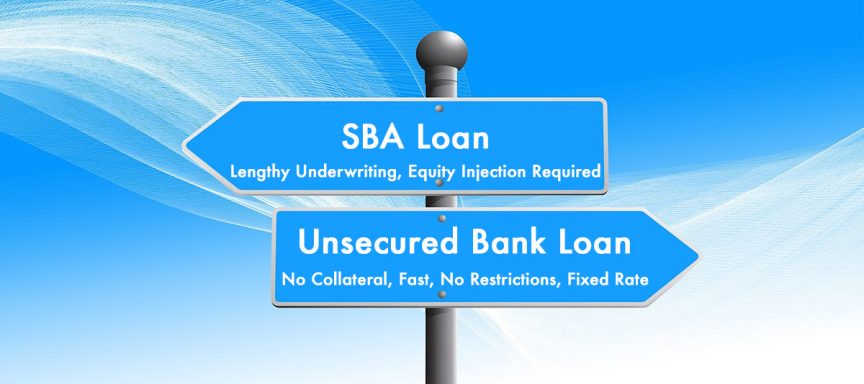If your business needs $150,000 or less to start-up or expand, it might be a good idea to consider the alternatives to SBA loans. The approval and closing process for the Unsecured Bank Loan is quick. It does not depend on outside factors like SBA franchise approval, franchise growth or financial performance reports. The borrower does not need to provide a hefty down-payment or equity injection and the rates and terms are comparable to SBA rates and terms. Additionally, the Unsecured Bank Loan, which requires no collateral, offers rates that are fixed, instead of variable.
The Top 5 reasons why an Unsecured Bank Loan might be a better fit for your business if you need a Small Business Loan
-
No Down-payment Required

The unsecured bank loan does not require proof of any equity injection or evidence of cash investment into the business. If a borrower is low on cash or would prefer to keep his or her personal cash separate from the business, this loan product could be a good fit. A business owner may want to keep cash on hand as a back-up and utilize the loan funds to purchase equipment or inventory, to make lease payments, to cover payroll or for marketing efforts.
-
Quick and Easy Approval and Funding
It is well known that the SBA application process can be difficult and lengthy. Several things must be evaluated with respect to the borrower as well as the business during underwriting. Due to the fact that SBA loans are backed by the U.S. Government, there are stringent rules that must be followed in order for a lender to ensure the SBA Guarantee will be available to them if the loan defaults. If lenders cannot prove that they have done all of their due diligence in underwriting a file, the government could decline the guarantee.
Start-up businesses can be risky. Loan applications are evaluated and approved or declined based on projections and not on actual historical financial data. For this reason, many lenders do not work with start-up businesses or brand new franchises that have only a few locations.

Often times the SBA closing process can also be very lengthy. After weeks of waiting for approval and jumping through many hoops to convince underwriters to move forward, borrowers will be surprised at how much additional work is needed during the closing process. Closing requires documentation of everything. Borrowers are oftentimes delayed by waiting for signatures on documents and contracts, which are dependent on others. Landlords, franchisors, contractors and equipment suppliers must all be checked, must provide documents and sign agreements, contracts and/or waivers. Forms must be completed to be in compliance with the SBA’s Standard Operating Procedures that must be followed by SBA lenders. It is also common for life insurance on the borrower(s) to be required by the lender. This is another hurdle that takes time, effort and expense.
The Unsecured Bank Loan has a quick pre-approval process of one day with only a soft credit pull required. The rest of the process is a couple of weeks for application, approval and closing. No signatures, contracts or waivers are required from franchisors, suppliers, landlords, contractors or other parties. Life Insurance is not a requirement for closing. Most loans are closed within 30 days and can be quicker with a responsive borrower who is organized and committed to communication and follow up.
-
Unsecured Means No Liens Required on Personal or Business Assets or Property

Unsecured Bank Loans do not require blanket liens on any business or personal assets. Since liens are not required, the closing process is quicker. Borrowers do not have to wait for lien searches or provide documentation. Borrowers may not be aware that SBA lenders require a full inventory of all business equipment as part of closing. An itemized report must be submitted and all tools or pieces of equipment with a value of $5,000 or more must have a description of the make, model and/or serial number. This can be another time-consuming exercise.
-
Fixed Rates as opposed to Variable Rates and Terms that are Similar to SBA Loans
Smaller size SBA loans usually offer terms of 7 to 10 years. For this reason many people like SBA loans. Longer terms allow for a smaller monthly payment expectation. Borrowers may be unaware that there are other loans available with similar terms. Normally the Unsecured Bank Loan offers a 5 or 7-year term. If a borrower is a homeowner and has liquid assets, it is possible to see a 10-year term offered. If a lender cannot offer a 10-year term, we can make suggestions for refinancing if necessary to extend the term of an Unsecured Bank Loan. SBA loans usually do not have a pre-payment penalty. This means if a borrower would like to make extra payments or prefers to pay the entire balance off early, there is no fee or penalty to do so. Unsecured Bank Loans also offer the same options. Many lenders have no issue with making extra payments or paying balances off early.
SBA loan rates can be variable or fixed. Often times they are variable, based on Wall Street Journal Prime Rate. The rate can fluctuate as Prime Rate fluctuates quarterly. Nearly all Unsecured Bank Loans are fixed rates. There is somewhat of a comfort level provided with a fixed rate. Borrowers can plan accordingly and know what the regular payment will be for the life of the loan. Fluctuating rates are great when they go down, but borrowers get stressed when rates climb. Businesses might appreciate the fixed-rate more than variable to prevent unplanned expense increases due to increasing interest rates.
-
No need for Franchise Approval, Franchise Disclosure Document Evaluation or Negotiation of Addendum Forms

Additionally SBA lenders carefully review the Franchise Disclosure Document (FDD). They look at how many units are operating and the number of increase and/or decrease in units over a 3 year period (Item 20). They also study the breakdown of costs (Item 7) and the financial performance reports (Item 19). All of these details are considered by the underwriters when making a decision on whether to approve or decline a loan application. For more details about these and other important items to consider in the FDD, read, “What do SBA Bank Lenders Look for in a Franchise Disclosure Document (FDD)?”
The Unsecured Bank Loan is not a government-guaranteed loan so lenders do not have to consider any of these notes, reports or details. The approval or decline is based solely on the borrower and his or her ability to repay the loan. The borrower must show the right amount of income to qualify but essentially could terminate employment after the loan closes. As long as the loan payment is made in full and on time, lenders are not concerned with future income. For this reason, borrowers should be wise and plan accordingly. If the borrower plans to terminate employment and work the business full time, reserve funds should be set aside to make the loan payment, while the business is ramping up. It is also a good idea to keep some of the loan funds set aside to cover the loan payment.
In Summary
As with any loan product, there are pros and cons to consider. The fees are usually higher with the Unsecured Bank Loan than the SBA loan. Borrowers should understand that there might be a good reason to pay the higher fees to avoid all of the difficulties that are possible with the SBA loan application process and closing process. We have seen several weeks go by while underwriters at SBA lenders are considering applications. Sometimes the weeks turn into months and the end result is not always an approval. It is very difficult for borrowers to deal with the pressure from a franchisor or a landlord while waiting on underwriting. All parties end up feeling stressed while waiting for a decision. If the application is eventually declined, there is a negative effect of the loss of other opportunities, time and money.
The approval and closing process for the Unsecured Bank Loan is quick. It does not depend on outside factors like SBA franchise approval, franchise growth or financial performance reports. The borrower does not need to provide a hefty down-payment or equity injection and the rates and terms are comparable to SBA rates and terms. Additionally, the Unsecured Bank Loan, which requires no collateral, offers rates that are fixed, instead of variable. There are many good reasons to consider the Unsecured Bank Loan to fund your business. Paying a higher fee to avoid the negative aspects that could be associated with the SBA loan application and the closing process might be well worth the investment. Time is money. If your business can open sooner, the pain of the fees will be quickly forgotten.
Get started with the Unsecured Bank Loan today by pre-qualifying: https://keycommercialcapital.com/prequalify/
All questions are optional, feel free to skip any you are not comfortable with, we do not pull credit reports until after we speak to you and obtain your permission. When your credit reports are accessed, it will be a soft credit pull for pre-qualification.

